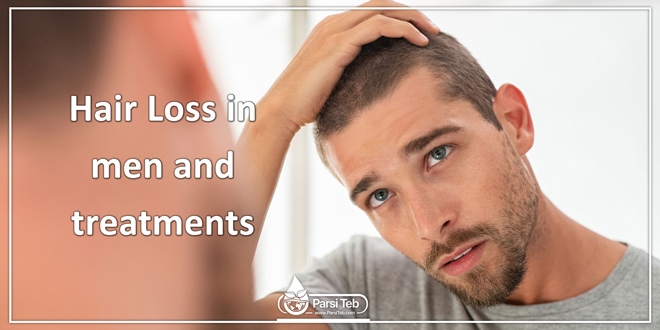hair loss in men and treatments
There are very few scientifically proven and FDA-approved treatments for hair loss. There are thousands of unproven claims and products to help with hair regrowth. Many conditioners, shampoos, vitamins, and other products claim to help hair grow in some unspecified way. Nioxin has been a popular brand of shampoo for hair loss, but there is no definite evidence showing it is any more effective than regular shampoos. These products are usually harmless but generally not scientifically proven and therefore potentially useless. To slow down hair loss, there are at least four potentially effective, basic options. These include medications like Minoxidil, Propecia, and Avodart which are maintenance-type medications and are for long-term use. Stopping these drugs does not seem to worsen or exacerbate the prior hair loss. In other words, stopping the medication will not leave you worse than you started out prior to the medication.
* Minoxidil (Rogaine): This topical medication is available over the counter and no prescription is required. It can be used in men and women. It works best on the crown, less on the frontal region. Minoxidil is available as a 2%solution, 4% solution, an extra-strength 5% solution, and a new foam or mousse preparation. Rogaine may grow a little hair, but it’s better at holding onto what’s still there. There are few side effects with Rogaine. The main problem with this treatment is the need to keep applying it once or twice a day, and most men get tired of it after a while. In addition, minoxidil tends to work less well on the front of the head, which is where baldness bothers most men. Inadvertent application to the face or neck skin can cause unwanted hair growth in those areas.
* Finasteride (Propecia): This medication is FDA approved for use in only men with androgenic hair loss. Although not FDA approved in women, it has been used “off label” in women with androgenic hair loss who are not pregnant or planning to become pregnant while on the medication. Finasteride is in a class of medications called 5-alpha reductase inhibitors. It is thought to help reduce hair loss by blocking the action of natural hormones in scalp hair follicles. Propecia is a lower-dose version of a commercially available drug called Proscar that helps shrink enlarged prostates in middle-aged and older men. Women, especially those who are or may become pregnant, should not handle finasteride capsules. Touching the contents of the capsules may potentially harm a male fetus and females who accidentally touch leaking capsules should wash the area to avoid side effects. Propecia 1 mg tablets are available by prescription and taken once daily. Propecia may grow and thicken hair to some extent for some people, but its main use is to keep (maintain) hair that’s still there. Studies have shown that this medication works well in some types of hair loss and must be used for about six to 12 months before full effects are determined. This medication does not “work” in days to weeks, and its onset of visible improvement tends to be gradual. It may be best for men who still have enough hair to retain but also can help some regrow hair. Possible but very unlikely side effects include impotence or a decreased sex drive (libido). Studies have shown that these side effects were possibly slightly more common than seen in the general population and are reversible when the drug is stopped. Taking Propecia once a day seems to be easier than applying minoxidil, but the prospect of taking a pill daily for years doesn’t sit well with some. There’s also the cost, about $70-$100/month, which is generally not reimbursed by most health insurers.
* Dutasteride (Avodart) has recently been used as “off label” to treat hair loss in men. It is FDA approved and primarily used to treat an enlarged prostate (benign prostatic hyperplasia, or BPH) only in men. Dutasteride is similar to finasteride (Propecia, Proscar) and is in a class of medications called 5-alpha reductase inhibitors. Dutasteride may help in hair loss by blocking the production or binding of a natural substance in the scalp hair follicles. Although not FDA approved in women, it has been used “off-label” in women with androgenic hair loss who are not pregnant or planning to become pregnant while taking the medication. Women, especially those who are or may become pregnant, should not handle dutasteride capsules. Touching the contents of the capsules may potentially harm a male fetus and females who accidentally touch leaking capsules should wash the area with soap and water immediately. There is a six-month clearance time required after taking this medication before being permitted to donate blood.
* A group of topical medications called prostaglandin analogs have recently began undergoing testing for potential hair regrowth. They may be used in men and women. These drugs are not currently FDA approved for scalp hair loss. Currently these are primarily used for eyelash enhancement. One of the new medications is called bimatoprost. Further testing and studies are required to assess the efficacy of these products in scalp hair loss.
Bimatoprost solution (Latisse) has just been started to be used off-label for help in selected cases of hair loss. It is currently FDA approved for cosmetic eyelash enhancement. Studies have shown it can treat hypotrichosis (short or sparse) of the eyelashes by increasing their growth, including length, thickness, and darkness. This medication is also commercially available as Lumigan, which is used to treat glaucoma. It is not known exactly how this medication works in hair regrowth, but it is thought to lengthen the anagen phase (active phase) of hair growth.
Interestingly, during routine medical use of Lumigan eye drops for glaucoma patients, it was serendipitously found that eyelashes got longer and thicker in many users. This led to clinical trials and the approval of cosmetic use of Latisse for eyelashes.
 Parsi Teb Physical and Mental Health Journal
Parsi Teb Physical and Mental Health Journal 

![RF [Radiofrequency treatment] (Part II)](https://en.parsiteb.com/wp-content/uploads/2019/08/parsi_teb-RF-Radiofrequency_treatment_2-310x165.jpg)

